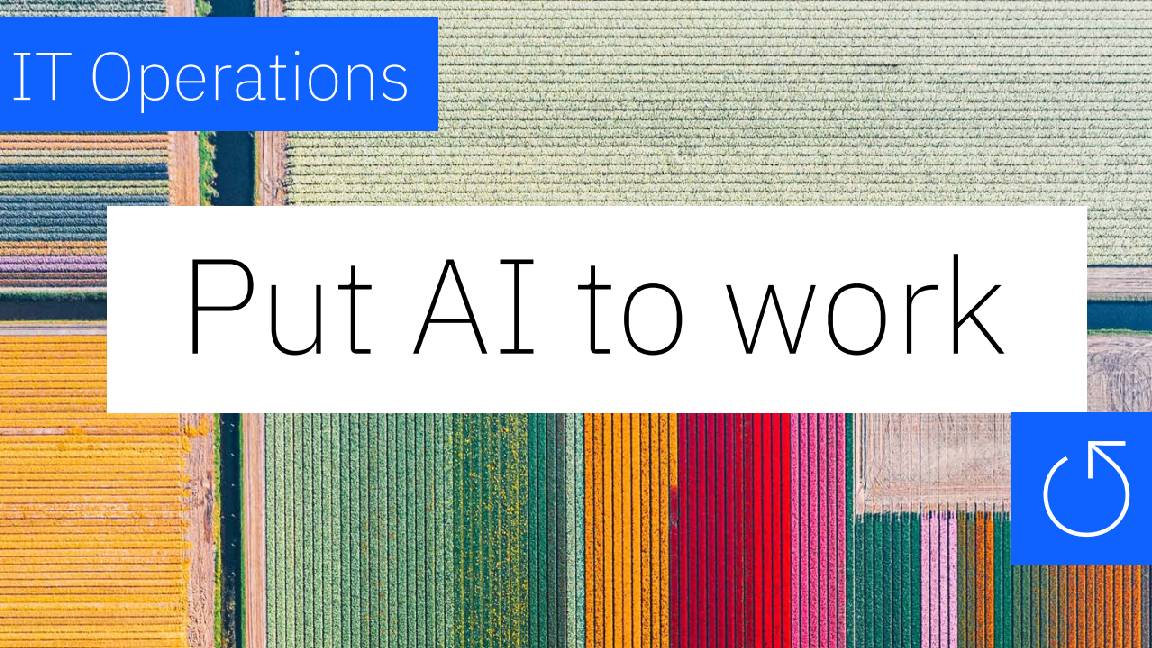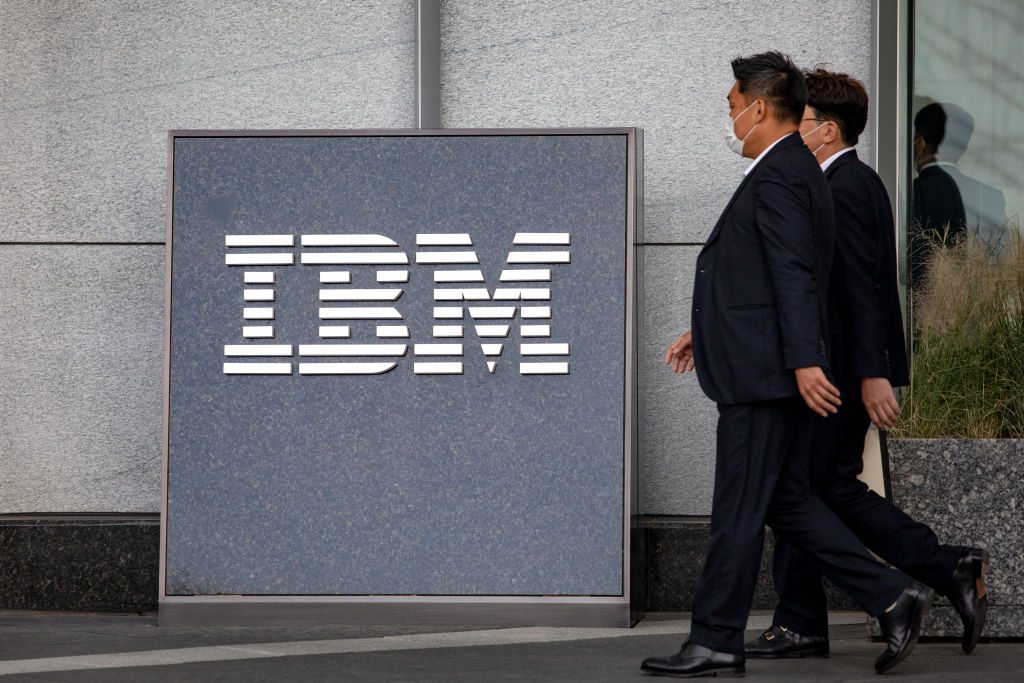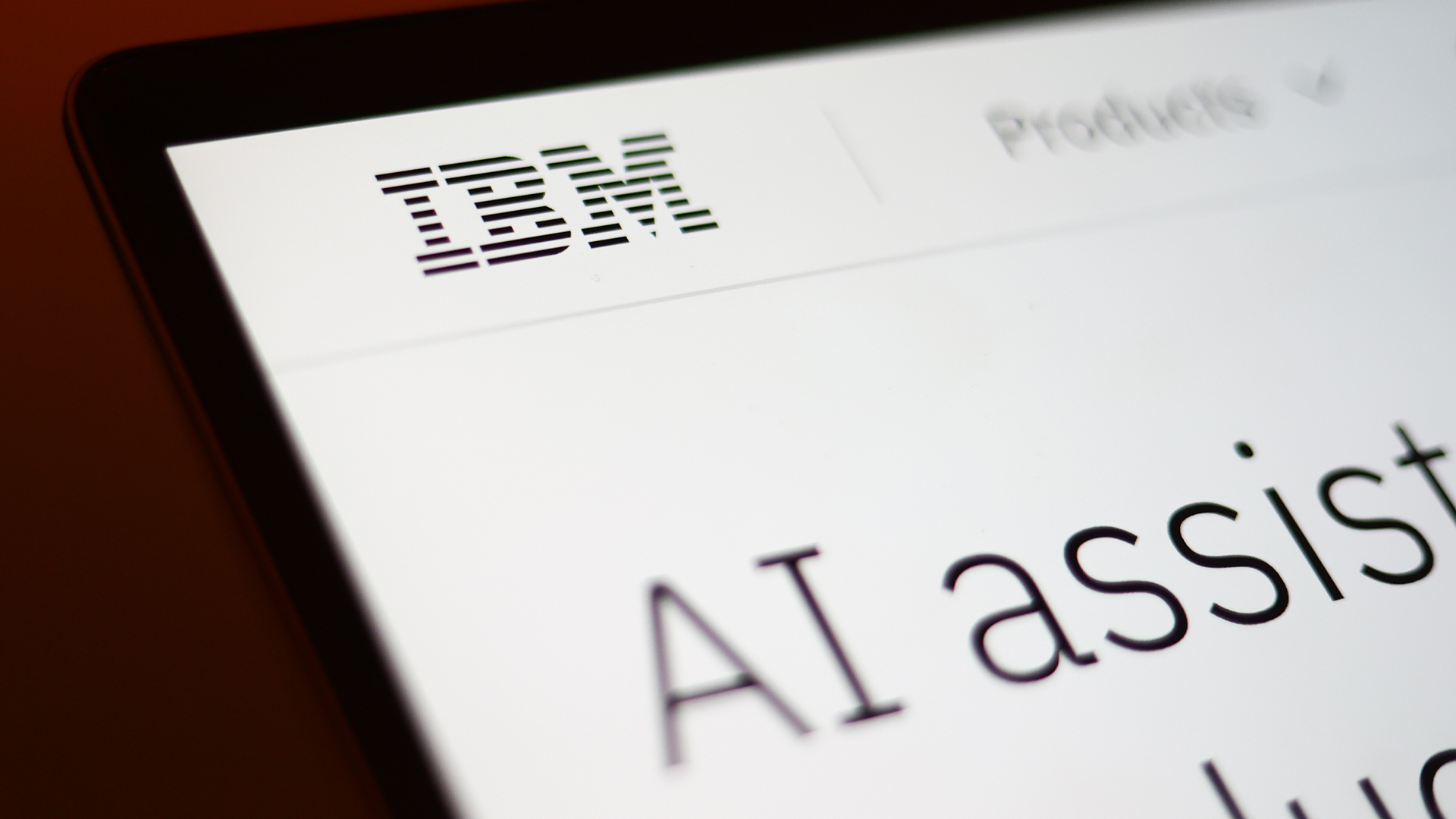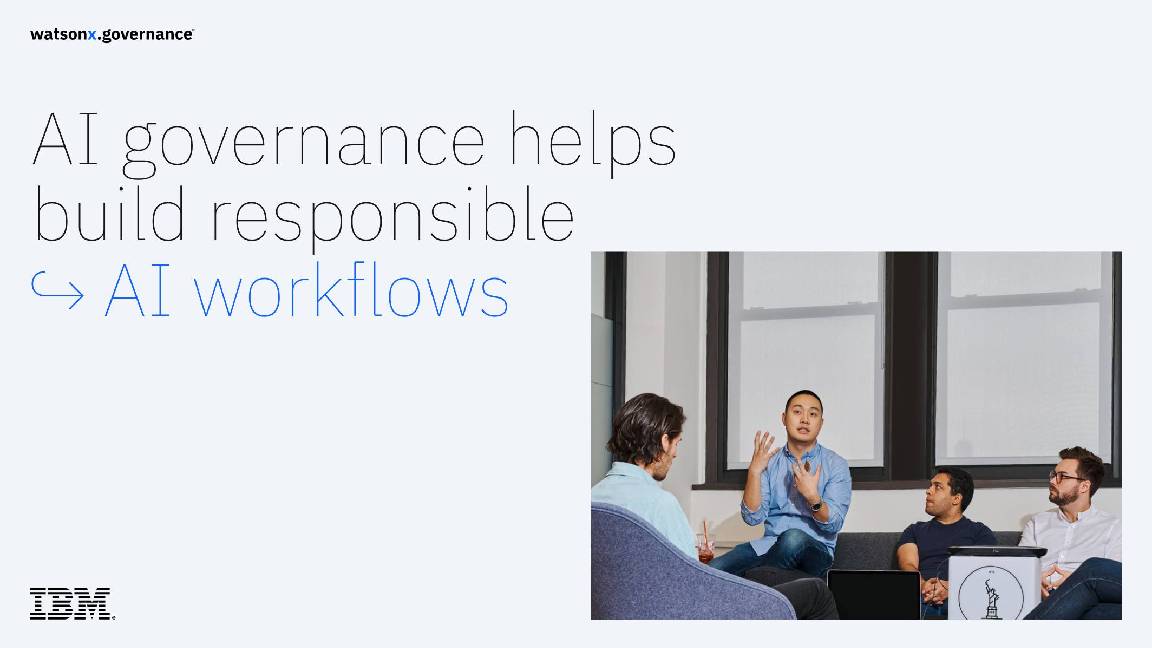IBM wants IT to make the world a better place
Computing giant IBM has big ambitions to make the world smarter and happier through technology.

IBM wants to use IT to make the world smarter, claiming that efficient systems would boost sustainability and, potentially, help address the issue of world hunger.
The company outlined its strategy to get the most value out of IT, recognising that businesses now had available to them high performance microprocessors, mobile telecommunications, energy efficient batteries and embedded intelligence to use in devices. And they're cheaper than ever before, according to IBM.
Steve Mills, senior vice president and group executive for IBM, speaking at the company's Information on Demand (IOS) conference in Las Vegas, said that this was due to a technology shift that had the potential to make the world smarter' and more effective'.
"There's something that we can do to fundamentally change the world that we live in, making it more efficient, more effective, more liveable, more durable and more sustainable for ourselves and generations to come," he said.
Mills said that the world had problems due to "enormous" inefficiency, even though we have built "incredible industrial systems with incredible capabilities".
"Think about the water supply," he said. "It's on its way to becoming the scarcest commodity on the planet. Think of the world's food supply. There is hunger in the world today, and yet we produce enough food on the planet to feed everybody."
"85 per cent of the computing capacity in the world is idle. It's underused. IT is the largest consumer of electricity now on the planet. All these great devices are consuming a tremendous amount of physical resource, and yet we're not using them to the fullest possible efficiency."
Sign up today and you will receive a free copy of our Future Focus 2025 report - the leading guidance on AI, cybersecurity and other IT challenges as per 700+ senior executives
Mills didn't go into major detail about how IBM could turn this vision into reality, but he used the examples of sensors and metering, which gave businesses the control and visibility of issues and ways to solve them.
Data integration was also important, according to Mills. Here businesses could get their data in the right format, organise it properly, deal with events, and "filter out the noise."
"We have to recognise that we haven't done these things as good as we could in the past," said Mills.
"We are learning from our experiences, and recognising that a lot of what we are collecting will be unstructured information. We need to bring organisation and structure to that," he added.
-
 The modern workplace: Standardizing collaboration for the enterprise IT leader
The modern workplace: Standardizing collaboration for the enterprise IT leaderHow Barco ClickShare Hub is redefining the meeting room
-
 Interim CISA chief uploaded sensitive documents to a public version of ChatGPT
Interim CISA chief uploaded sensitive documents to a public version of ChatGPTNews The incident at CISA raises yet more concerns about the rise of ‘shadow AI’ and data protection risks
-
 Put AI to work for IT operations
Put AI to work for IT operationswhitepaper Reduce the cost and complexity of managing hybrid applications
-
 AI in the retail industry is spreading beyond the IT department
AI in the retail industry is spreading beyond the IT departmentNews AI has become a strategic imperative for retailers, delivering marked productivity gains
-
 Maximizing contact center operations with generative AI assistants backed by responsible AI principles
Maximizing contact center operations with generative AI assistants backed by responsible AI principleswhitepaper Reduce the cost and complexity of managing hybrid applications
-
 IBM just launched powerful new open source AI models – here’s what you need to know
IBM just launched powerful new open source AI models – here’s what you need to knowNews Available under the Apache 2.0 license, IBM's Granite 3.0 models are trained on enterprise data and can out-perform the competition
-
 Achieving business outcomes with generative AI
Achieving business outcomes with generative AIWebinar Take your hybrid cloud journey to the next level with generative AI
-
 Wimbledon’s new Catch Me Up AI feature promises to keep fans up to date at the tournament – after it irons out some of the wrinkles
Wimbledon’s new Catch Me Up AI feature promises to keep fans up to date at the tournament – after it irons out some of the wrinklesNews The latest feature to come out of IBM’s partnership with Wimbledon will keep fans engaged from the early stages right through to the final with dynamic player insights
-
 AI demands new ways of data management
AI demands new ways of data managementwhitepaper The data leader’s guide for how to leverage the right databases for applications, analytics and generative AI
-
 AI governance for responsible transparent and explainable AI workflows
AI governance for responsible transparent and explainable AI workflowswhitepaper Build greater trust in your AI